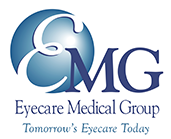
In May, the National Eye Institute usually organizes Healthy Vision Month. May is the perfect time of year to raise awareness about healthy practices when it comes to eye care.
It’s the end of spring and almost the start of summer. It’s also a time when people spend more time outdoors and in the sun.
This month, we encourage you to think about you and your family’s eye health by following these tips!
Protect Your Eyes
One of the best habits for your eyes you can get into is to always wear appropriate eye protection. For most people, this means wearing sunglasses when it’s bright out.
UV rays cause long-term ocular damage. They can also increase your risk for conditions later in life like cataracts, glaucoma, and macular degeneration.
Wearing the right protection like sunglasses keeps your eyes safe from these harmful rays. Be sure to wear a pair that blocks out 99% of UV light.
There should be a label on them when you buy them. Some cheaper sunglasses may not make the cut.
But there are other ways you should be protecting your eyes, especially if you’re active. When playing any sports, you should consider wearing an eye guard.
Even if you play tennis or a sport with hard projectiles, you’re better off wearing some eye protection. If you’re a swimmer, be sure to wear air-tight goggles whenever you swim.
Make sure to take out your contacts when you get in the pool, as chlorine and contacts don’t mix!
Stay Healthy and Active
For better long term eye health, one of the best things you can do is maintaining a healthy lifestyle. This means eating a balanced diet, exercise, drinking in moderation, and not smoking.
Studies show that conditions like obesity and diabetes increase your risk of developing eye conditions. A poor diet can also trigger dry eye syndrome in certain people, especially in hotter weather.
Be sure to stay hydrated. If you struggle to get your nutrients from food, consider taking supplements like fish or flaxseed oil.
Omega-3 fatty acids help your eyes produce enough tears and promote better eye health.
Have Regular Eye Exams
Everyone should have regular eye exams. For most people, this means going to the eye doctor once every two years.
This number changes if you have existing eye conditions or refractive errors. You may need to see your eye doctor for an eye exam once a year in this case.
If you have a refractive error, you should see the doctor annually to make sure your prescription is up to date.
For all individuals fifty and older, you should see an eye doctor annually for retinal exams. Older individuals are at increased risk of retinal damage.
This is most likely to occur from macular degeneration and diabetic retinopathy. Diagnosing these conditions early on with an eye exam before they present symptoms is the only way to slow down irreversible damage.
If you’re over fifty and suffer from a pre-existing condition like diabetes, heart disease, or hypertension, your doctor may want you to have regular exams more than once a year.
Concerned about your eye health? Schedule an appointment at Eyecare Medical Group in Portland, ME to learn more!





